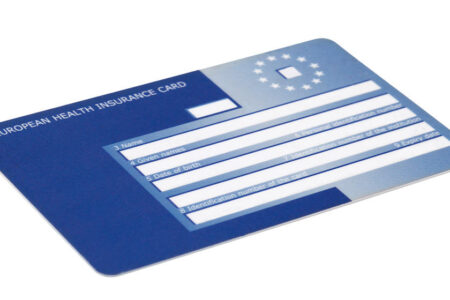Obtaining a Tax Identification Code (TIC) in Cyprus is an important procedure for both individuals and legal entities, especially if you plan to work, conduct business, or open bank accounts. The process may seem complicated, but following the steps correctly will help you avoid potential delays. Below is a detailed guide on how to obtain a TIC.
Contents
Step 1: Preparing the Necessary Documents
Before applying for a TIC, you need to gather all the required documents. The list of documents depends on your status (Cypriot citizen, EU citizen, or third-country national) and the type of applicant (individual or company).
- Cypriot citizens: a copy of the Cypriot ID card.
- EU citizens: a copy of the registration certificate from the Department of Registration and Migration (commonly known as the “yellow slip”).
- Third-country nationals: a copy of the residence permit (Pink Slip).
- For companies: copies of the company’s registration certificates, legal address, details of directors and shareholders, if applicable.
It is important to ensure that all documents are also photocopied, as tax authorities do not provide copying services on-site.
Step 2: Completing Form T.D. 2001
The main document for registering with the Cyprus Tax Department is Form T.D. 2001. You can obtain it at any district Tax Department office or download it from the official website of the Ministry of Finance of Cyprus.
Complete the form in English or Greek, providing the following information:
- Full name.
- Residential address in Cyprus.
- Contact information.
- Reasons for registration (e.g., work, business, or income in Cyprus).
Step 3: Submitting Documents to the Tax Department
The application, along with the prepared documents, can be submitted to one of the district offices of the Tax Department. In major cities like Limassol, Nicosia, or Larnaca, tax offices are available. You can find the addresses of these offices on official websites or via Google Maps.
You may also submit the documents via email. For example, in Limassol, the application and documents can be sent to lemesos@tax.mof.gov.cy.
Step 4: Receiving the Tax Identification Code
Once you submit your application and all necessary documents, you will be assigned a TIC. This process typically takes 1 to 7 business days.
In some cases, the timeframe may be extended depending on the workload of the tax authorities. If documents are submitted electronically, the TIC may be sent to you by email.
Step 5: Registering with the TAXISnet System
After receiving your TIC, the next step is to register with the TAXISnet system. This is a mandatory procedure, as all tax reporting in Cyprus is done exclusively online. To do this, you need to create an account in the TAXISnet system, selecting the appropriate section for income tax or VAT.
Registration in TAXISnet is required for both individuals and companies, as all tax declarations and payments are processed through this portal. Note that separate accounts may be needed for each type of tax (e.g., VAT and income tax).
Additional Information
If you want to register as a VAT payer (for businesses), you need to submit Form T.D. 1101 at the district office of the VAT Department. You will also need to provide documents confirming taxable activity in Cyprus, such as a copy of a contract or invoice. Make sure that all forms are completed in Greek, as all tax documentation in Cyprus is conducted in this language.
The process of obtaining a TIC in Cyprus is fairly straightforward if you follow all the steps and prepare the necessary documents in advance. Make sure you fill out all the forms correctly and submit them to the appropriate tax office. After receiving the TIC, register with the TAXISnet system for filing returns and paying taxes.
















